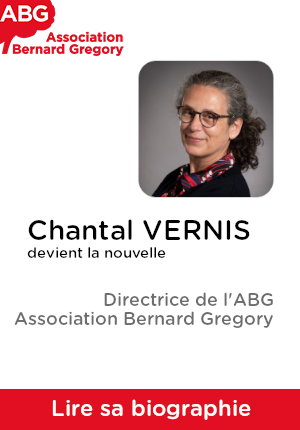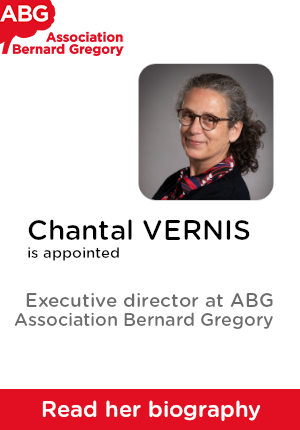Study of the topology of Reionization models produced by the new Dyablo cosmological simulation code
| ABG-130324 | Sujet de Thèse | |
| 01/04/2025 | Autre financement public |
- Physique
- Mathématiques
- Physique
Description du sujet
Supervision
Dominique Aubert (ObAS Strasbourg)
Laboratory and team
ObAS, Strasbourg - Team "GALHECOS"
Subject description
The Epoch of Reionization (EoR) happened during the first billion years of the history of the Universe and hosted the buildup of the first structures and their components such as galaxies, active galactic nuclei, the first stars and supermassive black holes. The radiation produced by these objects led to the warm and ionised Intergalactic Medium as we know it today. In an era expected to be stacked with new (JWST) or soon-to-be available (SKA) results, EoR studies provide an ideal scientific case to push for the development of numerical methods : code development, production of state-of-the-art simulations, post-processing of large datasets and dissemination of simulation products. In particular, EoR models present specific challenges as they require simultaneously large simulated volumes (typically 200 cMpc), sufficiently resolved at galactic scale (ideally<1 kpc) while dealing with intensive computations for e.g. radiative transfer. The upcoming generation of supercomputers, which surpasses the Exaflop processing power thanks notably to Graphics Processing units (GPUs), will provide the means to overcome these difficulties. In october 2024, members of the ObAS (D. Aubert & P. Ocvirk) started the ExaSKAle ANR 48 months project that aims at 1/ developing the next generation of EoR simulation code for Exascale machines 2/ produce EoR simulations on Exascale supercomputers over this timeline 3/ use these simulations to analyse jointly the IGM reionization and first galaxies in a unified framework. In particular we will build upon the current Dyablo project [1], led by the French atomic agency CEA to build a new AMR framework for astrophysical simulations and for which Strasbourg has been actively contributing for a few years. Dyablo is designed to be massively parallel (including GPUs), architecture-agnostic as well as an experience of code co-design between astrophysicists and computational scientists. It is also part of the demonstrators of the Exa-DI Numpex initiative. As of today, the code is able to produce EoR simulations with ad-hoc modeling of astrophysical sources of radiation. The goals of the PhD in this context would be twofold : 1/ contribute to the ExaSKAle project by developing the Dyablo code, notably to include astrophysical models of source formation 2/ study the topology of the reionization process in Dyablo simulations using concepts of Morse Theory. The first part could be based on the Dyablo star formation modules currently being developed by collaborators at the Institut d’astrophysique de Paris or on semi-analytical prescriptions for unresolved radiation production by halos at large (z>20) redshift [2], that we currently re-implement in the context of a Master internship. This part of the work requires code development of the Dyablo C++ code and being able to test and validate these implementations on HPC infrastructures. For the second part, the PhD will produce and analyse Dyablo simulations to re-assess the topology of the propagation of the reionization process, following a methodogy developed recently in Strasbourg [3] on semi-analytical models. In particular the PhD will aim at retesting the validity of the gaussian random field hypothesis for reionization times fields produced in simulations and see if predictions on peak statistics, isocontours and the skeleton still hold. From there, the PhD will aim at investigating how galaxy properties can be traced back to the topology of EoR, both observable in principle by experiments such as JWST and SKA [4].
[1] Delorme, M., Durocher, A., Aubert, D., Brun, A. S., & Marchal, O. (2024), SF2A-2024: Proceedings
[2] Meriot, R., & Semelin, B. (2024), A&A, 683, A24.
[3] Thélie, E., Aubert, D., Gillet, N., Hiegel, J., & Ocvirk, P. (2023), A&A, 672, A184.
[4] Hiegel, J., Thélie, É., Aubert, D., Chardin, J., Gillet, N. et al. (2023), A&A, 679, A125.
Related mathematical skills
Python and C++ programming skills
Knowledge of collaborative IT development tools
Reasonable facility with a “formal” and mathematical approach to physics: Gaussian field theory, Press-Schechter model
Prise de fonction :
Nature du financement
Précisions sur le financement
Présentation établissement et labo d'accueil
IRMIA++ is one of the 15 Interdisciplinary Thematic Institute (ITI) of the University of Strasbourg. It brings together a research cluster and a master-doctorate training program, relying on 12 research teams and 9 master tracks.
It encompasses all mathematicians at Université de Strasbourg, with partners in computer science and physics. ITI IRMIA++ builds on the internationally renowned research in mathematics in Strasbourg, and its well-established links with the socio-economic environment. It promotes interdisciplinary academic collaborations and industrial partnerships.
A core part of the IRMIA++ mission is to realize high-level training through integrated master-PhD tracks over 5 years, with common actions fostering an interdisciplinary culture, such as joint projects, new courses and workshops around mathematics and its interactions.
Site web :
Profil du candidat
Selection will rely on the professional project of the candidate, his/her interest for interdisciplinarity and academic results.
Vous avez déjà un compte ?
Nouvel utilisateur ?
Vous souhaitez recevoir nos infolettres ?
Découvrez nos adhérents
 Nokia Bell Labs France
Nokia Bell Labs France  CASDEN
CASDEN  Laboratoire National de Métrologie et d'Essais - LNE
Laboratoire National de Métrologie et d'Essais - LNE  Ifremer
Ifremer  Généthon
Généthon  TotalEnergies
TotalEnergies  CESI
CESI  Institut Sup'biotech de Paris
Institut Sup'biotech de Paris  Aérocentre, Pôle d'excellence régional
Aérocentre, Pôle d'excellence régional  ADEME
ADEME  MabDesign
MabDesign  ASNR - Autorité de sûreté nucléaire et de radioprotection - Siège
ASNR - Autorité de sûreté nucléaire et de radioprotection - Siège  PhDOOC
PhDOOC  MabDesign
MabDesign  Tecknowmetrix
Tecknowmetrix  SUEZ
SUEZ  Groupe AFNOR - Association française de normalisation
Groupe AFNOR - Association française de normalisation  ANRT
ANRT  ONERA - The French Aerospace Lab
ONERA - The French Aerospace Lab
-
EmploiRef. 130080Paris , Ile-de-France , FranceAgence Nationale de la Recherche
Chargé ou chargée de projets scientifiques bioéconomie H/F
Expertises scientifiques :Biochimie
Niveau d’expérience :Confirmé
-
Sujet de ThèseRef. 130176Strasbourg , Grand Est , FranceInstitut Thématique Interdisciplinaire IRMIA++
Schrödinger type asymptotic model for wave propagation
Expertises scientifiques :Mathématiques - Mathématiques







